Meet the Wounded Warrior Alumni Who Will Join Us on High Seas Rally 2022
September 19, 2022
In addition to the High Seas Rally Dialysis Fund, we have expanded our mission to support Veterans and Service members with our new partnership with Wounded Warrior Project.
Since 2003, Wounded Warrior Project has been meeting the growing needs of warriors, their families, and caregivers — helping them achieve their highest ambition. High Seas Rally is proud to announce that we will donate cabins to Wounded Warriors who will sail free of charge.
Each Warrior and his/her companion will receive round trip transportation to the cruise, a cabin on the ship and $500 in onboard credit to help these deserving recipients enjoy the World’s Only Motorcycle Rally on a Cruise Ship™.
In addition, the Salute to Service day on the 2022 cruise will raise money to benefit the Wounded Warrior Project. This tribute will feature the Molly Hatchet concert on the main stage, a Veteran Get-Together, a First Responder Get-Together, a 50/50 raffle supporting Wounded Warrior Project, a special salute, and a slide show to celebrate those who have served their country.
Read the inspirational stories from the five WWP Alumni who will be joining us on High Seas Rally 2022.
Bill Geiger
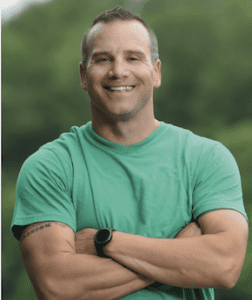
When Bill Geiger returned to civilian life after two deployments with the United States Army, he was a changed man. His service with the military police in Guantanamo Bay, Cuba, and Camp Bucca, Iraq, guarding high-value detainees and being exposed to mortar attacks and riots, deteriorated the formerly vibrant man his wife, Sara, once knew.
‘‘I knew something was wrong the first time I hugged him after coming back from Cuba,’’ says Sara. ‘‘His joy for life was gone, replaced by a depressed, anxious, short-tempered recluse.’’
Meanwhile, the children walked on eggshells around their father. ‘‘How do you describe a man who yells at you because you dropped a bread crumb on the floor?’’ Bill asks of himself.
Then one day, Bill saw an email Sara had left open on their family’s computer. It was to their pastor and said, in part: ‘‘If I had known Bill was going to be like this, I never would have married him.’’
Instead of submitting to the volatility of his post-traumatic stress disorder (PTSD), Bill finally surrendered. ‘‘I wasn’t going to lose my wife,’’ says Bill. ‘‘I knew I needed help to learn how to fix this thing.’’
Bill Thomas
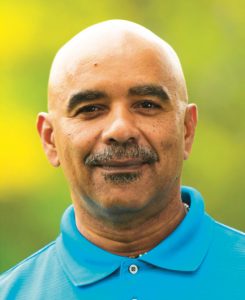
Bill Thomas served our country and his community for more than 30 years. He joined the Air Force Reserve in 1977 and got out in 1986 to become a Newark, NJ, police officer. Then he went back into the Air National Guard in 1998, working his job with the Newark Police and serving his country at the same time. As a result of his life as a police officer and airman, by the time he deployed to Iraq in 2007, he was already living with some of the symptoms of post-traumatic stress disorder (PTSD).
One day in Iraq, while looking for weapons in a building at Baghdad International Airport, one of Bill’s team members and his bomb sniffing dog came in contact with exposed wiring, killing the dog and sending the man flying through the air. After the electrical explosion, two higher-ranking airmen abandoned them inside the hangar, rather than coming to their aid. The situation was a breaking point for Bill and sent his PTSD into high gear.
The next two years were a mix of therapies, prescriptions, and inpatient treatment — but nothing brought him peace. Then, in 2009, Bill tried to commit suicide — but thankfully, paramedics arrived and were able to get him to a hospital. Shortly thereafter, he found a path toward the peace he was looking for with Wounded Warrior Project® (WWP).
Philip Krabbe
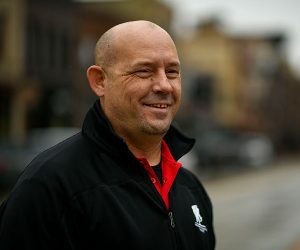
Philip Krabbe’s happiest memories came from the time he spent in the U.S. Marine Corps. “I loved the Marines.” Philip says. “The best part was the camaraderie and the love we had for one another.”
But that brotherhood made the reality of war even more devastating. On May 23, 2006, Philip lost two of his Marines and an interpreter to a roadside bomb. Not only were they his friends, but as their platoon sergeant, Philip felt responsible. He compartmentalized his feelings and carried on with the mission, but it wasn’t long before he needed prescription drugs to get to sleep at night.
When Philip returned home, post-traumatic stress disorder (PTSD) and survivor’s guilt led him to continue self-medicating with drugs and alcohol. “I was an alcoholic,” admits Philip. “I was a drug addict, too. I tried to cope the only way I knew how, just to be able to function during the day.”
In 2017, Philip found Wounded Warrior Project® (WWP) and, at his very first event, met a fellow warrior named Ray Pizarro. Philip didn’t know it at the time, but that moment would become a major turning point in his life.
Ray Andalio
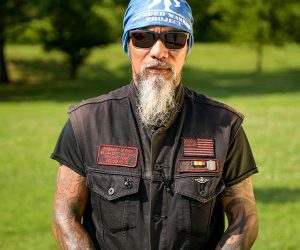
Ray Andalio was born in the Philippines and immigrated to the United States when he was 14 years old because of a revolution in his homeland. He loved and respected the country that sheltered his family and helped them find freedom, and in 1992 he decided to give back by joining the U.S. Navy. He served six years on active duty before transferring to the reserves.
In 2003, Ray was sent to Iraq to serve as a corpsman for a unit of marines, and his training was put to the ultimate test. “My whole battalion was getting blasted left and right,” says Ray. “Everybody in my unit has something wrong. If they say there’s nothing wrong with them, they’re in denial.”
Ray was injured in April 2004, when the shock waves from multiple explosions caused a traumatic brain injury (TBI) that — to this day — requires him to wear dark glasses to prevent severe headaches. He also lives with post-traumatic stress disorder (PTSD) as a result of his experiences. As a corpsman, you’re there to save lives — but the reality of war is that you can’t save everyone. When Ray came home, he struggled more with his survivor’s guilt and PTSD than the physical injury to his brain.
Sam Hargrove
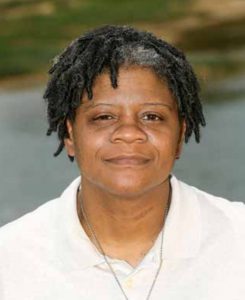
Sam Hargrove joined the U.S. Air Force in 1996 for the promise of a better life and a secure future. She never thought her job as an admin, working on computers, would put her in harm’s way — but in Iraq, everything was in harm’s way.
One morning in 2003, while calling home from a tent on her base in Tallil, a bomb exploded. The shock wave from the blast blew through the tent, knocking out the base’s communication system and leaving Sam with a traumatic brain injury. Miraculously, she was able to walk away from the explosion — helping a junior Airman to safety along the way.
When she returned home, she couldn’t escape the memory of the blast and the hyper-vigilance she’d become accustomed to while deployed to a warzone. In 2010, Sam finally realized she needed help. “My godson told me he was scared of me,” says Sam. “I had a lot of anger issues.”
Sam got some counseling, but regular therapy was only helping a little bit. One night, she got drunk and intended to turn off the road and crash her car into a tree to end her pain. Thankfully, she never took that turn. The next day, she told her social worker that if she didn’t get help right away, she would try to kill herself again.
He got her into a 90-day inpatient program, which helped while she was there — but she lapsed into negative patterns when she got back home. Then she learned about Wounded Warrior Project® (WWP).
